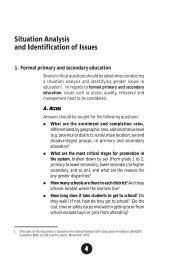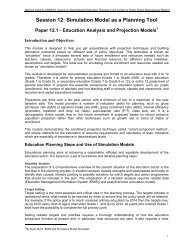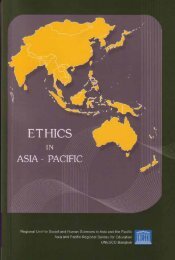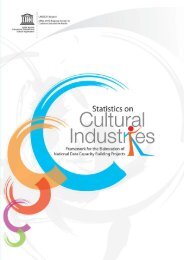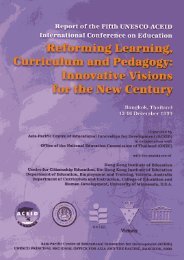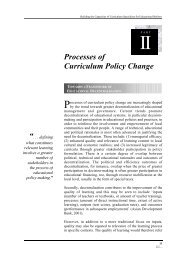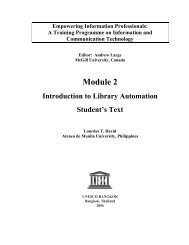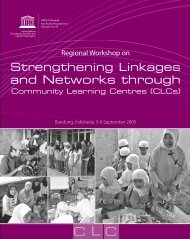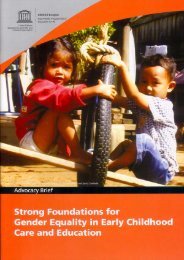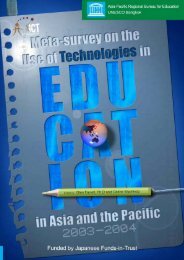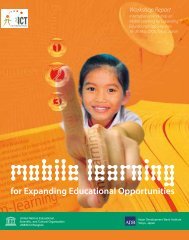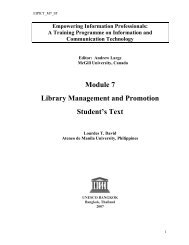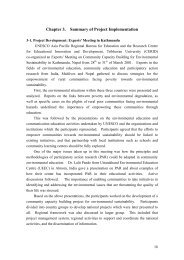Download PDF, 752KB - UNESCO Bangkok
Download PDF, 752KB - UNESCO Bangkok
Download PDF, 752KB - UNESCO Bangkok
Create successful ePaper yourself
Turn your PDF publications into a flip-book with our unique Google optimized e-Paper software.
List of Projects by CountryThe low educational status of women in Pakistan has led to much effortbeing directed towards facilitating participation of girls at primary level.But the problem is even more acute at post-primary level. In many casesthe roles and responsibilities of girls and women make it difficult forthem to attend traditional forms of post-primary education. Thus there isa need to develop alternative and innovative means for their participation.This project, which ran between 1986 and 1996, was undertaken by theInstitute of Mass Education of the Allama Iqbal Open University incooperation with the Ministry of Women’s Development, and theMinistry of Education, with financial support from the Government of theNetherlands. It aimed to diversify the educational opportunities for girlsand women at secondary level, and to provide a curriculum that offeredfunctional and skills-oriented courses that are relevant for rural women.The national secondary curriculum provided the basis for thedevelopment of a special course, but with course content selectedaccording to the needs of the students. Course materials, written insimple Urdu on a self-study basis, are designed and written to suit thedaily life needs of rural women. Texts are highly illustrative and aresupported by audio-visual materials, workbooks, practical kits and selfassessmentquestions. Course content is activity-based and special carehas been taken that students can use indigenous materials.The study materials are sent to the student’s home. Students are requiredto attend tutorials for one hour per week for each course that they arestudying. Specially trained part-time tutors are appointed for groups often students, and tutorials are held at a formal school.A student support system has also been developed and implemented.Guidance and counseling is provided to students through face-to-facecontact, visits to study centres and regular correspondence. Special ongoingtraining is provided for field coordinators who are responsible forcounseling.The project has been accessed by an average of 8,000 women per year,and some 1,500 have completed to certificate level.ReferenceBakkar, S and Batool, N (1997), The results analysis of women’s secondaryeducation programme, Journal of Distance Education, AIOU, Pakistan.58 © Snapshots of Primary and Secondary Education in Asia-Pacific



